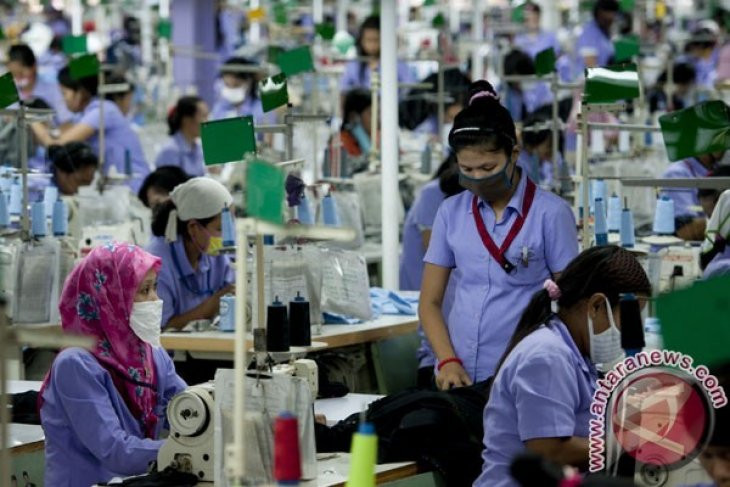Popular Reads
Top Results
Can't find what you're looking for?
View all search resultsPopular Reads
Top Results
Can't find what you're looking for?
View all search resultsIndonesia's PMI hits record high third month in row
Change text size
Gift Premium Articles
to Anyone
I
ndonesia’s Purchasing Managers’ Index (PMI) rose to a record high for the third consecutive month in May, compelling manufacturers to hire new workers for the first time since the pandemic struck the country.
Business consultancy IHS Markit wrote in a press release on Wednesday that Indonesia’s PMI reached 55.3 in May, up from 54.6 in April, the highest reading ever recorded since the company started measuring the PMI in April 2011.
The PMI gauges factory activity based on a monthly survey of 400 local manufacturers. A PMI above 50 indicates expansion, while a PMI below 50 indicates contraction.
“Companies signaled robust demand and output improvements, while the first increase in employment in 15 months was also an encouraging sign,” said IHS Markit economics associate director Jingyi Pan.
Manufacturers had not hired new workers in April, leaving employment levels unchanged and order backlogs on the rise, even though activity was already rising that month, wrote IHS Markit in a previous statement.
Read also: Indonesia posts record manufacturing PMI for 2nd month in row
According to Statistics Indonesia (BPS) data, Indonesia’s unemployment rate stood at 6.26 percent in February, which is still higher than the average 5 percent of the past few years.
Indonesian Employer Association (Apindo) chairman Hariyadi B. Sukamdani said that demand for lifestyle-related goods such as shoes, sports equipment and household electronics was driving the recovery in factory activity.
“We are optimistic about the manufacturing sector in the months ahead if the pandemic handling goes well,” he told the Post in an interview on Wednesday.
[RA::New COVID-19 variants may jeopardize economic recovery in Indonesia:/news/2021/05/15/new-covid-19-variants-may-jeopardize-recovery-economists.html]
The country’s COVID-19 caseload has been in general decline since February, but the recent detection of more transmissible variants ahead of the Idul Fitri mudik (exodus) has prompted concerns over a possible resurgence as has been seen in many other countries.
Furthermore, manufacturers still face supply chain problems and high input costs due to bad weather, raw material shortages and mobility restrictions. As a result, average selling prices rose for the seventh successive month in May.
Johnny Darmawan, vice-chair of industrial affairs at the Indonesian Chamber of Commerce and Industry (Kadin), said the PMI rise was partly spurred by the Idul Fitri holiday and by government recovery programs.
A case in point, the government introduced a luxury tax cut (PPnBM) for new cars starting March that helped raise domestic car sales above 2020 figures.
“It is good that the economy is moving in this direction. The question then is: Can the economy survive without such drivers?” he said to the Post in an interview on Wednesday.










